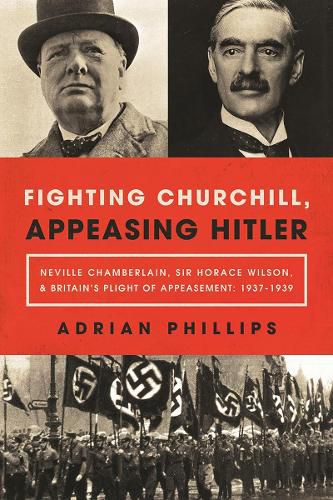Readings Newsletter
Become a Readings Member to make your shopping experience even easier.
Sign in or sign up for free!
You’re not far away from qualifying for FREE standard shipping within Australia
You’ve qualified for FREE standard shipping within Australia
The cart is loading…






A radically new view of the British policy of appeasement in the late 1930s, identifying the individuals responsible for a variety of miscalculations and moral surrender that made World War II inevitable. Appeasement failed in all its goals. The kindest thing that can be said of it is that postponed World War II by one year. Its real effect was to convince Hitler and Mussolini that Britain was weak and afraid of confrontation, encouraging them to ever-greater acts of aggression.
Chamberlain and Wilson blindly pursued bilateral friendship between Britain and the dictators and ferociously resisted alternative policies such as working with France, the Soviet Union, or the U.S. to face down the dictators. They resisted all-out rearmament which would have put the economy on a war footing. These were all the policies advocated by Winston Churchill, the most dangerous opponent of appeasement.
Neither Chamberlain nor Wilson had any experience of day-to-day practical diplomacy. Both thought that the dictators would apply the same standards of rationality and clarity to the policies of Italy and Germany that applied in Britain. They could not grasp that Fascist demagogues operated in an entirely different way to democratic politicians. The catastrophe of the Chamberlain/Wilson appeasement policy offers a vital lesson in how blind conviction in one policy as the only alternative can be fatally damaging.
$9.00 standard shipping within Australia
FREE standard shipping within Australia for orders over $100.00
Express & International shipping calculated at checkout
A radically new view of the British policy of appeasement in the late 1930s, identifying the individuals responsible for a variety of miscalculations and moral surrender that made World War II inevitable. Appeasement failed in all its goals. The kindest thing that can be said of it is that postponed World War II by one year. Its real effect was to convince Hitler and Mussolini that Britain was weak and afraid of confrontation, encouraging them to ever-greater acts of aggression.
Chamberlain and Wilson blindly pursued bilateral friendship between Britain and the dictators and ferociously resisted alternative policies such as working with France, the Soviet Union, or the U.S. to face down the dictators. They resisted all-out rearmament which would have put the economy on a war footing. These were all the policies advocated by Winston Churchill, the most dangerous opponent of appeasement.
Neither Chamberlain nor Wilson had any experience of day-to-day practical diplomacy. Both thought that the dictators would apply the same standards of rationality and clarity to the policies of Italy and Germany that applied in Britain. They could not grasp that Fascist demagogues operated in an entirely different way to democratic politicians. The catastrophe of the Chamberlain/Wilson appeasement policy offers a vital lesson in how blind conviction in one policy as the only alternative can be fatally damaging.